Tag Archives: waste
Made using 3000 Nespresso pods, this installation transforms ocean waste into art

The Superegg Installation is a comment on our capitalist tendencies and its effect on nature. By combining consumerism and creation into one hard-hitting sculpture, the art piece helps turn human-created ocean waste into an object that sparks conversations while saving the environment. The 6’6″ high structure comes made from 3000 Nespresso and Keurig single-use coffee pods that were pulled out of the ocean. These aluminum pods were then mounted onto aluminum sheets which were finally wrapped onto plywood rings to create the shape of an egg.
The Superegg installation looks like a Fabergé egg from afar, with the thousands of colorful pods forming patterns on it, but the magic is doubled at night, when a light within the installation illuminates the structure, causing it to create mesmeric shadows like tinted glass mosaics at churches and cathedrals. The egg acts as proof of how damaging our consumerism can be on the environment, while being a reminder that we can always turn our waste and wasteful behaviors into something more meaningful and nurturing.
The Superegg is a winner of the A’ Design Award for the year 2020.
Designer: Jaco Roeloffs





Sega Europe is moving to recycled packaging for PC games
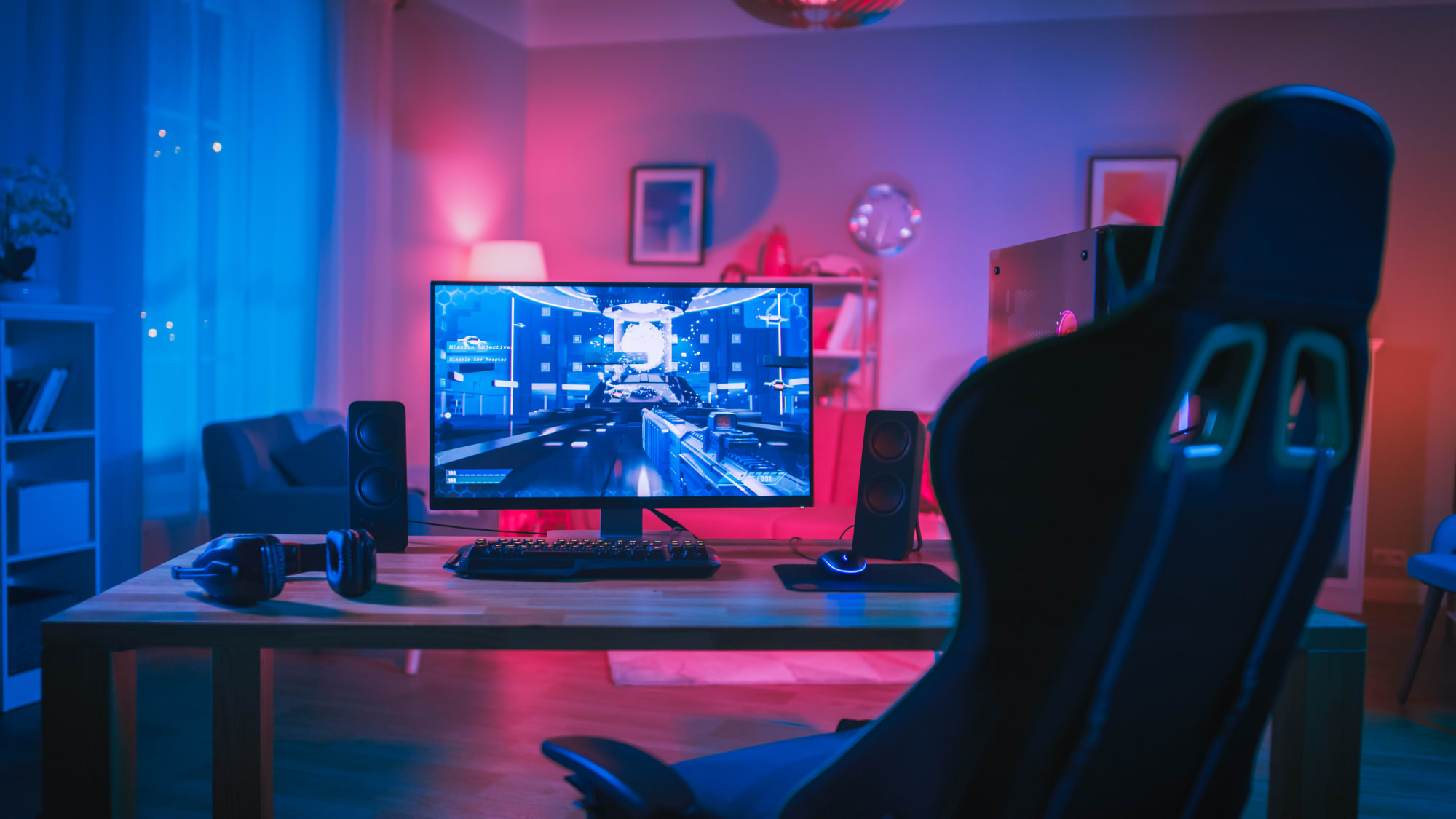 Remember when PC games came in a box and you had to buy them at a store? Apparently that's still a thing. To curb pollution and waste, Sega Europe is committing to using 100 percent recycled and 100 percent recyclable packaging for its PC games. The...
Remember when PC games came in a box and you had to buy them at a store? Apparently that's still a thing. To curb pollution and waste, Sega Europe is committing to using 100 percent recycled and 100 percent recyclable packaging for its PC games. The...
UN chief warns nuclear waste could be leaking into the Pacific
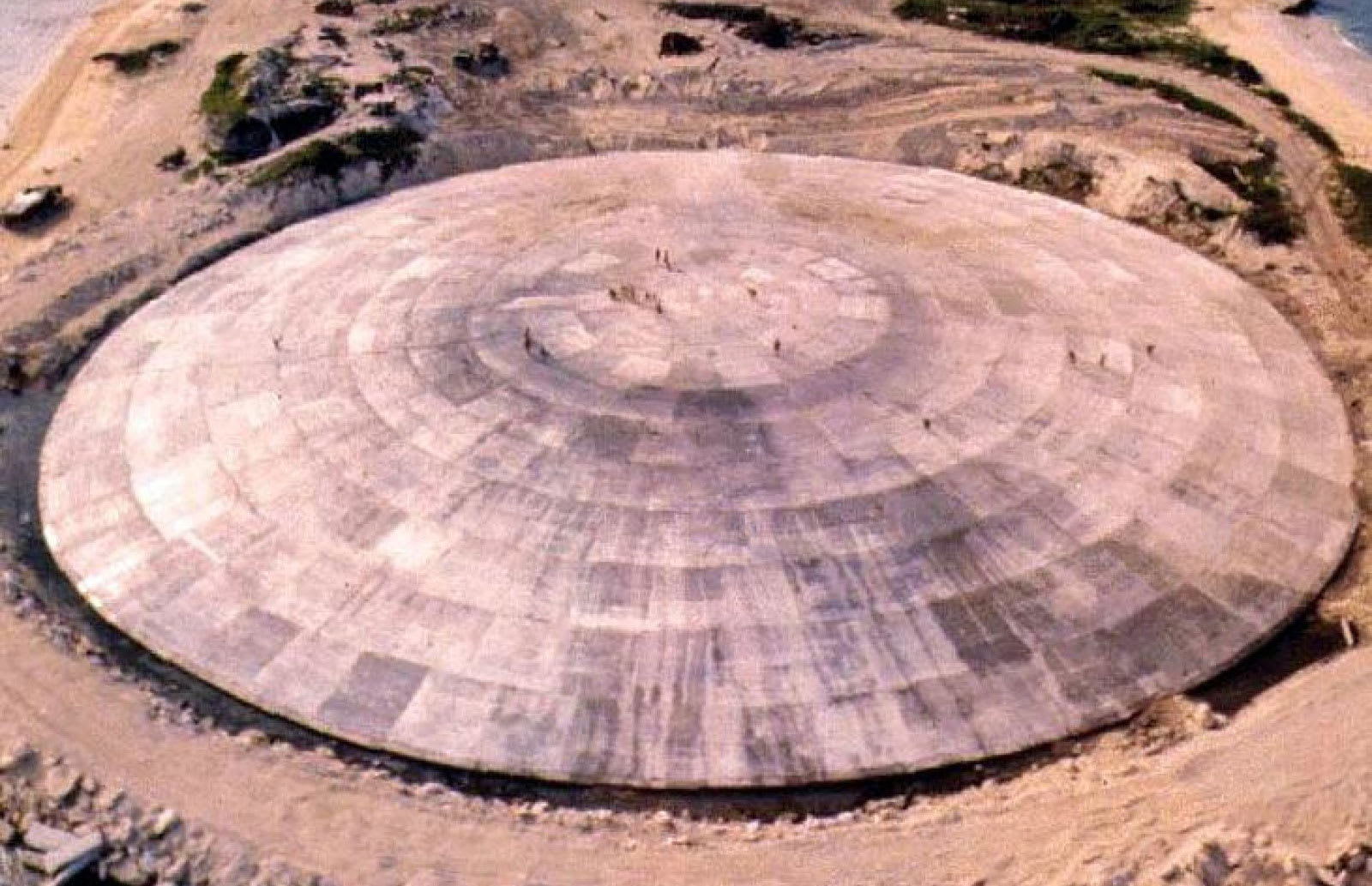 A UN chief is concerned that a Cold War-era nuclear 'coffin' could be leaking radioactive material into the Pacific. The concerns are both alarming and oddly similar to the plot of Shin Godzilla -- including the part about it being the US's fault.
A UN chief is concerned that a Cold War-era nuclear 'coffin' could be leaking radioactive material into the Pacific. The concerns are both alarming and oddly similar to the plot of Shin Godzilla -- including the part about it being the US's fault.
This colorful, marbled speaker is made from non-recyclable plastic waste

While plastic waste, to a certain degree, can be recycled, it’s just a small percentage of the total waste out there. Certain polymers grow past their ability to be recycled because of additives, impurities, stickers, prints, etc. and this is the plastic that causes the biggest problem because it just can’t be recycled.
Brighton-based design studio Gomi is trying to be a part of the solution. The Gomi speaker, designed by the studio, uses these unrecyclable plastics as its primary raw material, turning as many as a 100 plastic bags into a blockish speaker that churns out music and looks spectacular while doing so. The speaker’s block comprises three separate parts or modules that can be easily separated and melted down to form new parts when imperfectly formed or when discarded. Its simple blockish shape enables this, and also forms a brilliant canvas for the beautiful marbled effect of the colored plastics that interact with each other. Gomi’s raw materials and hand-crafted marbling ensure that no two speakers look the same, making them bespoke and one-of-a-kind.
Designed to be a great speaker too, Gomi partnered with electronic engineers and audio professionals to hone the sound of the speaker, and even used recycled denim for acoustic insulation! Plus, in a bid to make sure that the Gomi lives up to its purpose of being a speaker that champions a cradle-to-cradle approach, the company is even offering free repairs for their products and devising a system where customers can return products to be recycled.
Designer: Tom Meades (Gomi)




Enzyme Eats Plastic Waste
Enzyme Eats Plastic Waste
Scientists accidentally produce an enzyme that devours plastic
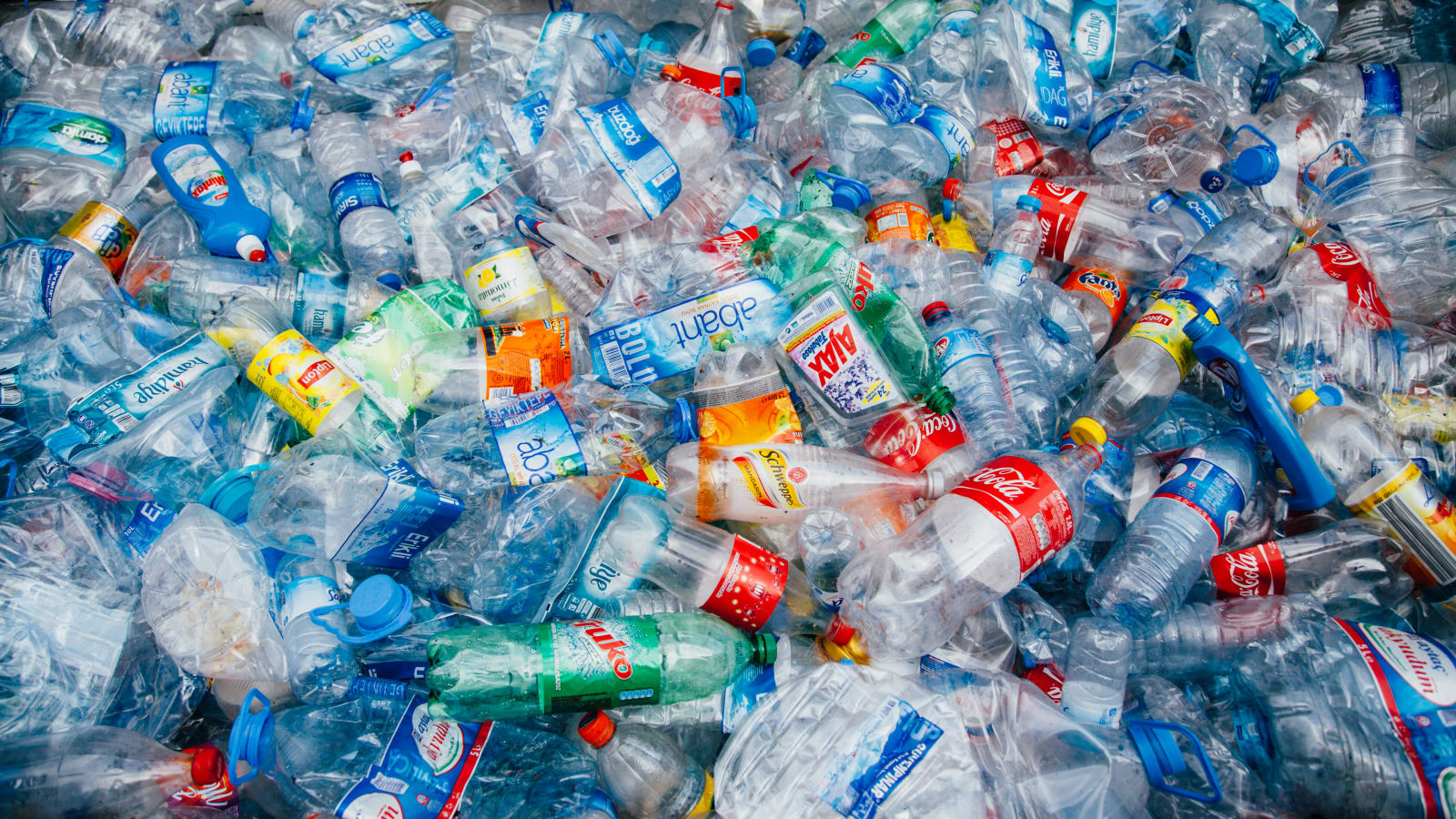 There are research teams around the world dedicated to finding a remedy for the growing plastic pollution crisis, but now it seems that one group of scientists have found a feasible answer -- and they stumbled upon it by accident. Researchers studyin...
There are research teams around the world dedicated to finding a remedy for the growing plastic pollution crisis, but now it seems that one group of scientists have found a feasible answer -- and they stumbled upon it by accident. Researchers studyin...
Turning Plastic Trash into Fantastic Tiles!
After stunning audiences in Beijing, Shanghai, and most recently in London, the Trashpresso makes its way to the Milan Design Week. The massive machine, big enough to fit into a 40-ft shipping container, is the world’s first off-grid, industrial grade recycling solution. What does it do? Turns plastic waste into stunning, upcycled architectural tiles.
The upcycling process takes place in five stages. The gathered plastic waste is first shredded, then washed, air-dried, dehumidified, and then baked into molds that form the recycled plastic into beautifully patterned hexagonal tiles. Made from PET waste, the tiles are durable, long-lasting, and weather resistant.
The Trashpresso can upcycle up to 50 kilograms of plastic waste per hour, converting vast expanses of plastic waste into decorative tiles that can be used in homes. The machine can be transported anywhere a truck can reach, and relies on solar power to run itself. It also leaves a zero water footprint, as every liter it uses is looped back through three steps of filtration: quartz sand filter, ultrafiltration, and reverse osmosis.
The Trashpresso will be showcased at the Milan Design Week 2018 from April 15th to the 22nd.
Designer: Miniwiz
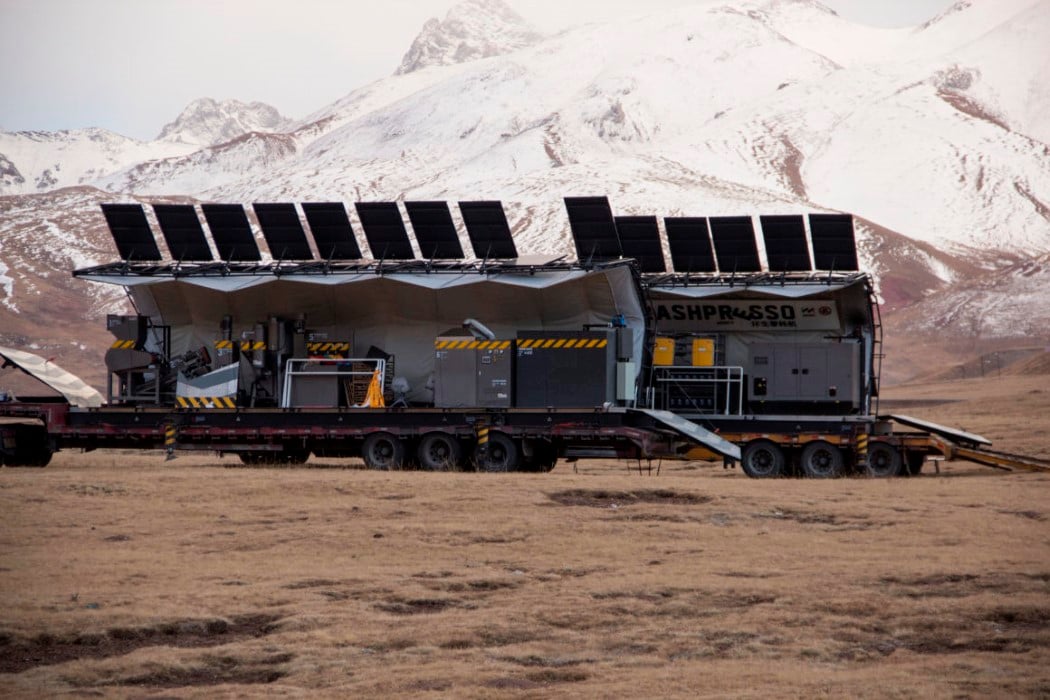
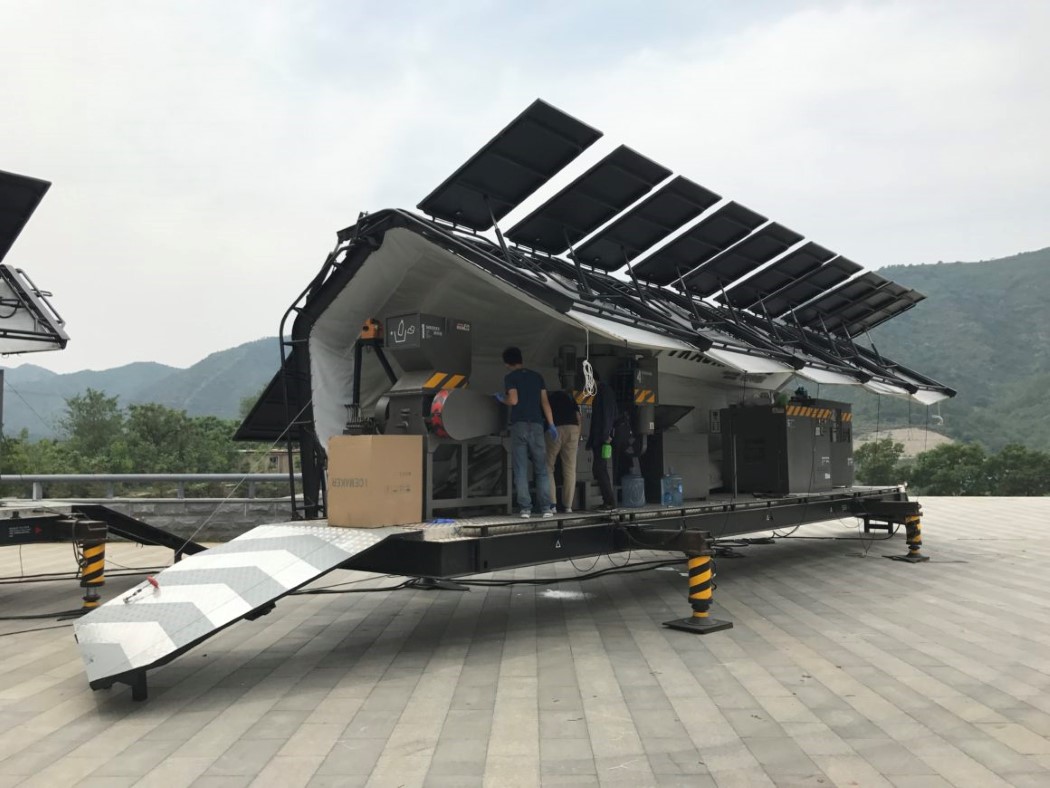
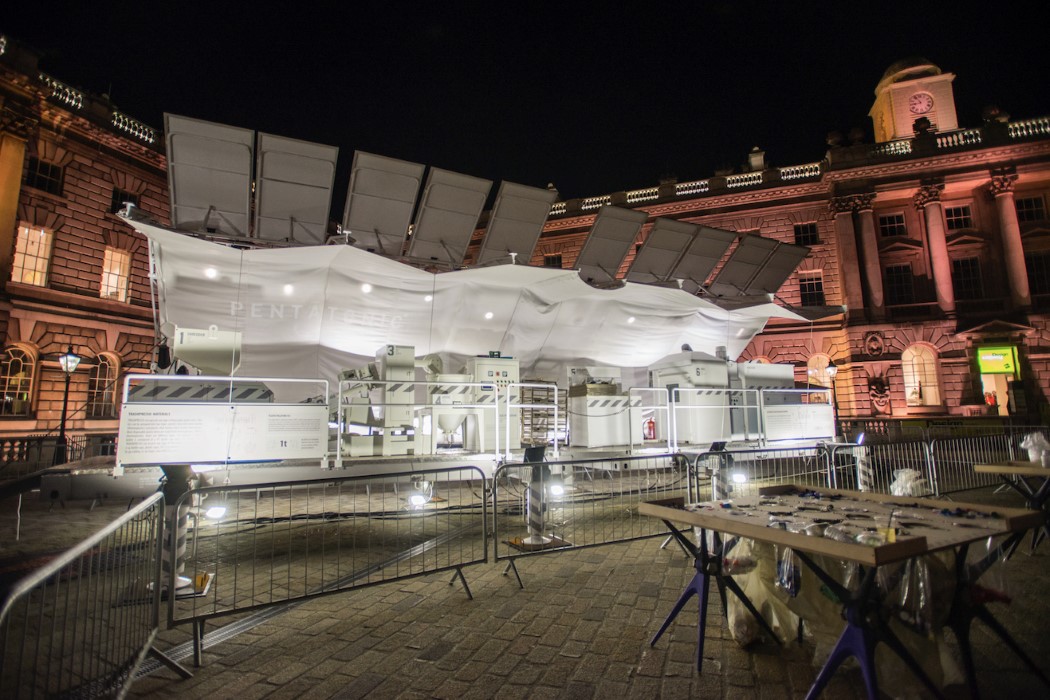
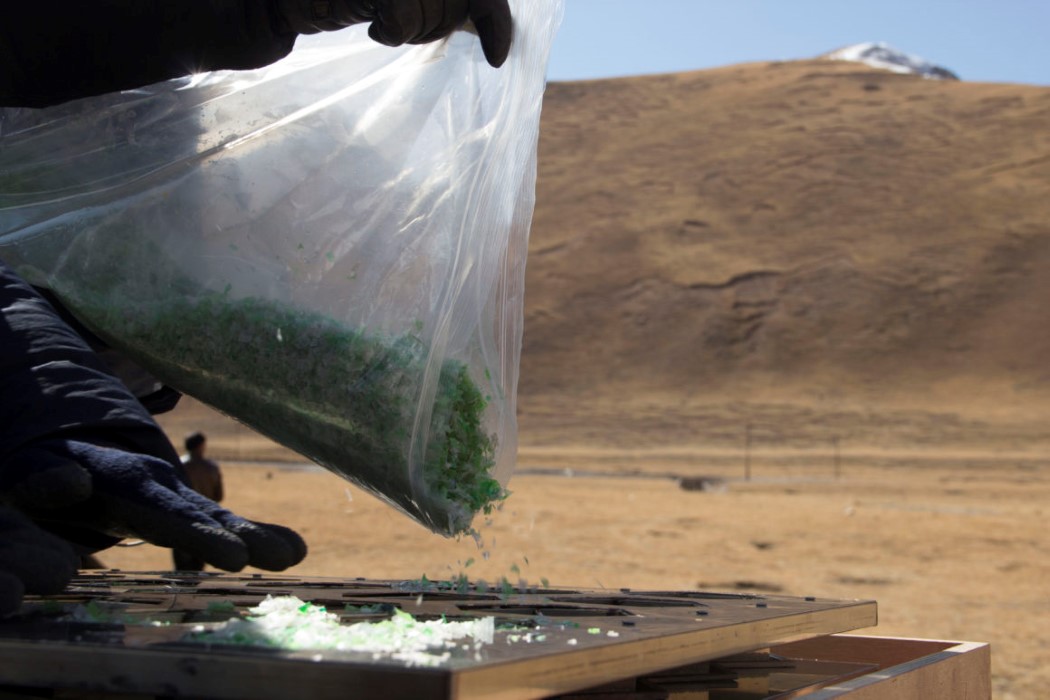
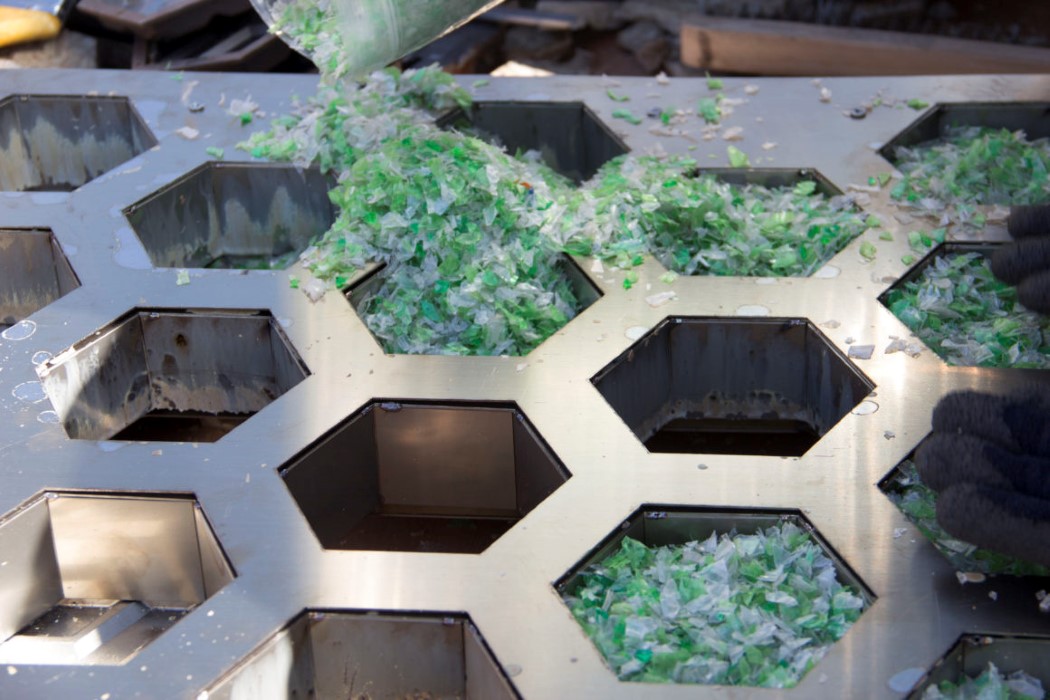
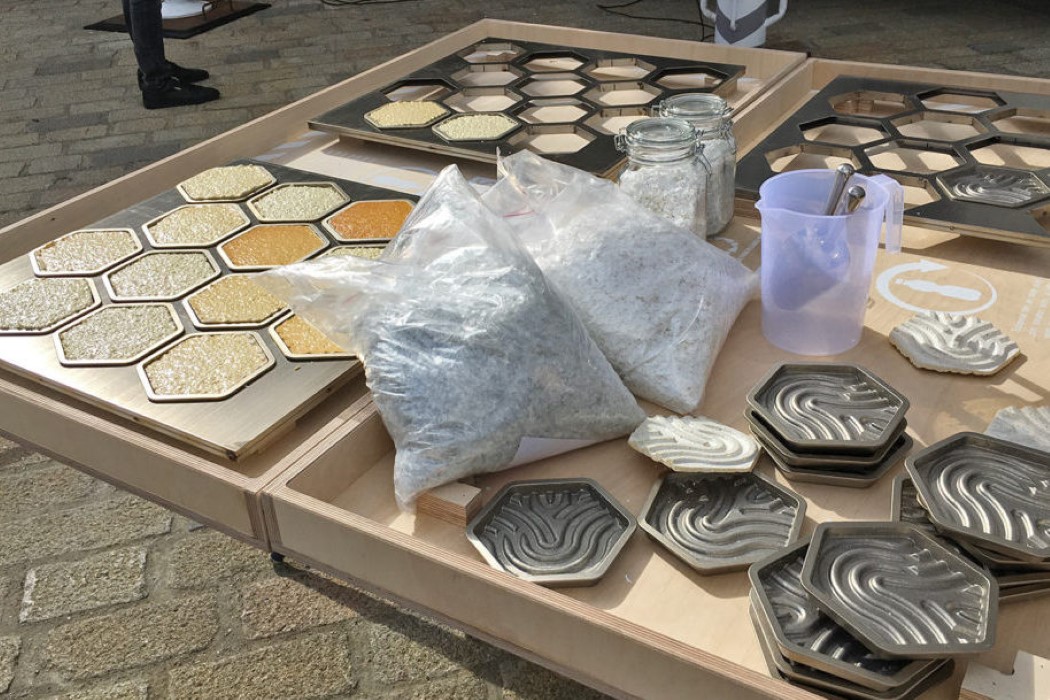
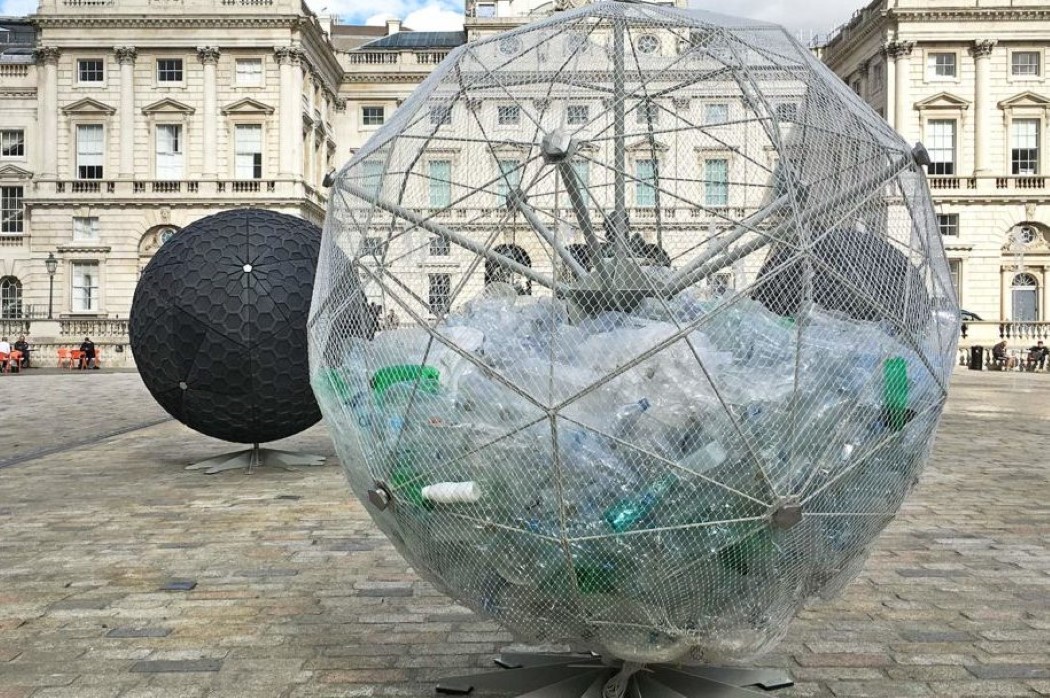
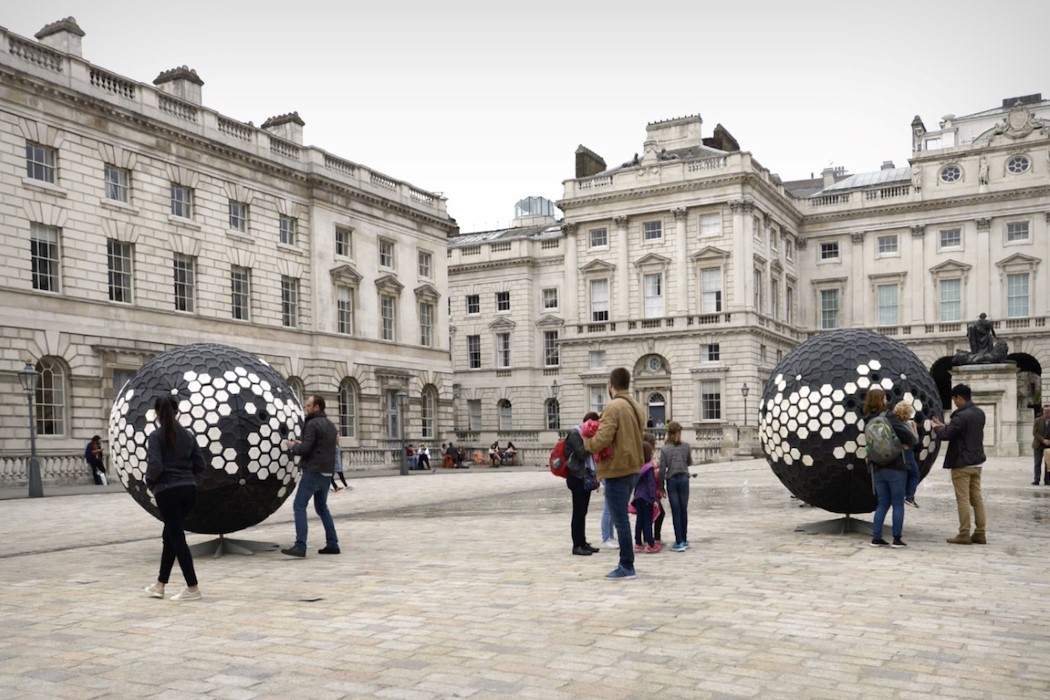
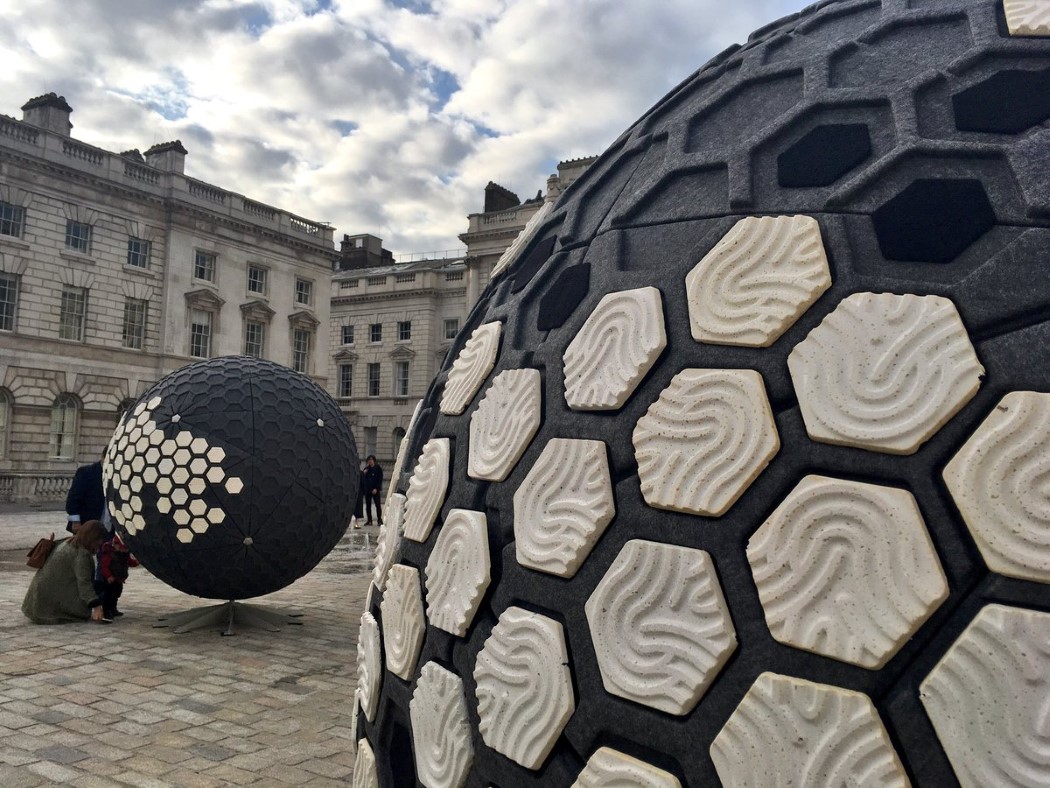
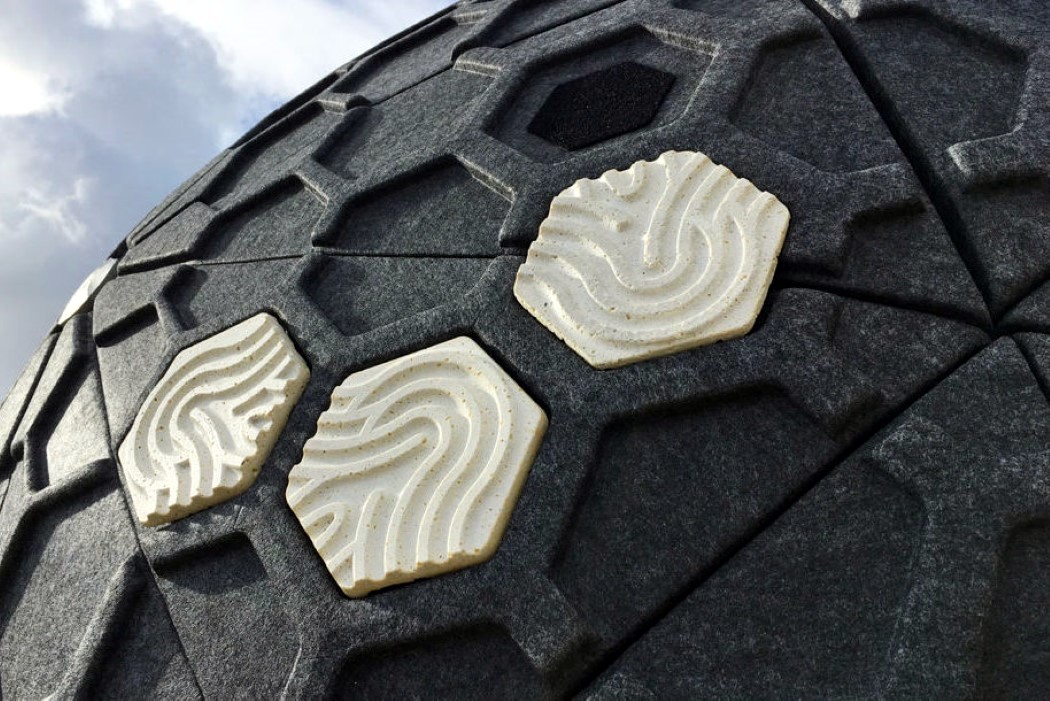
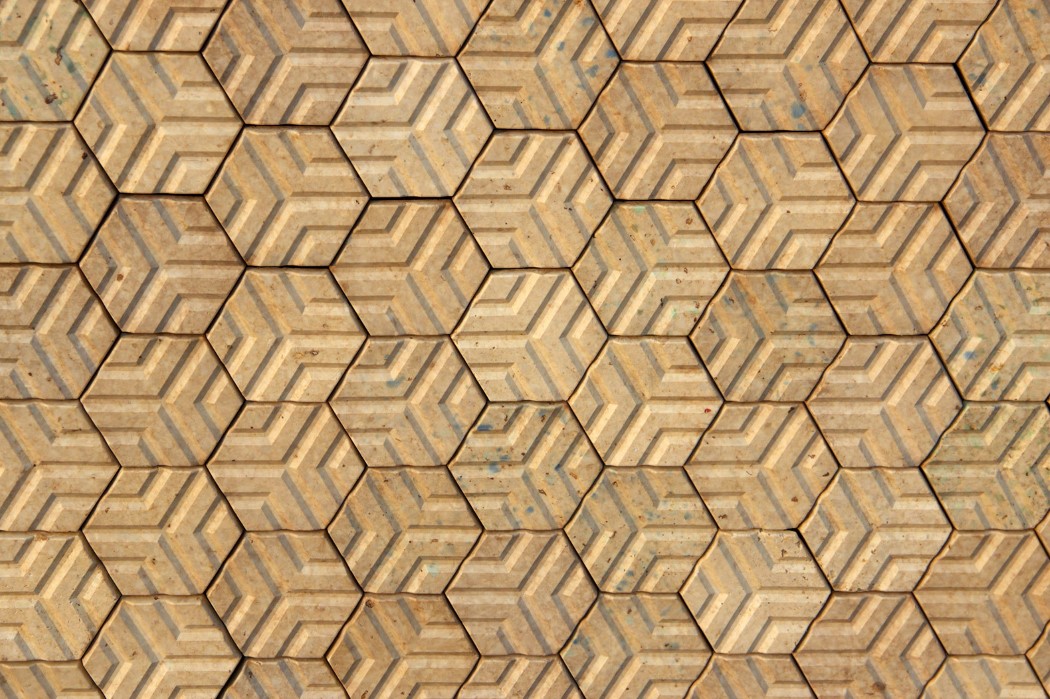
ESA plans to measure ocean plastic data from space
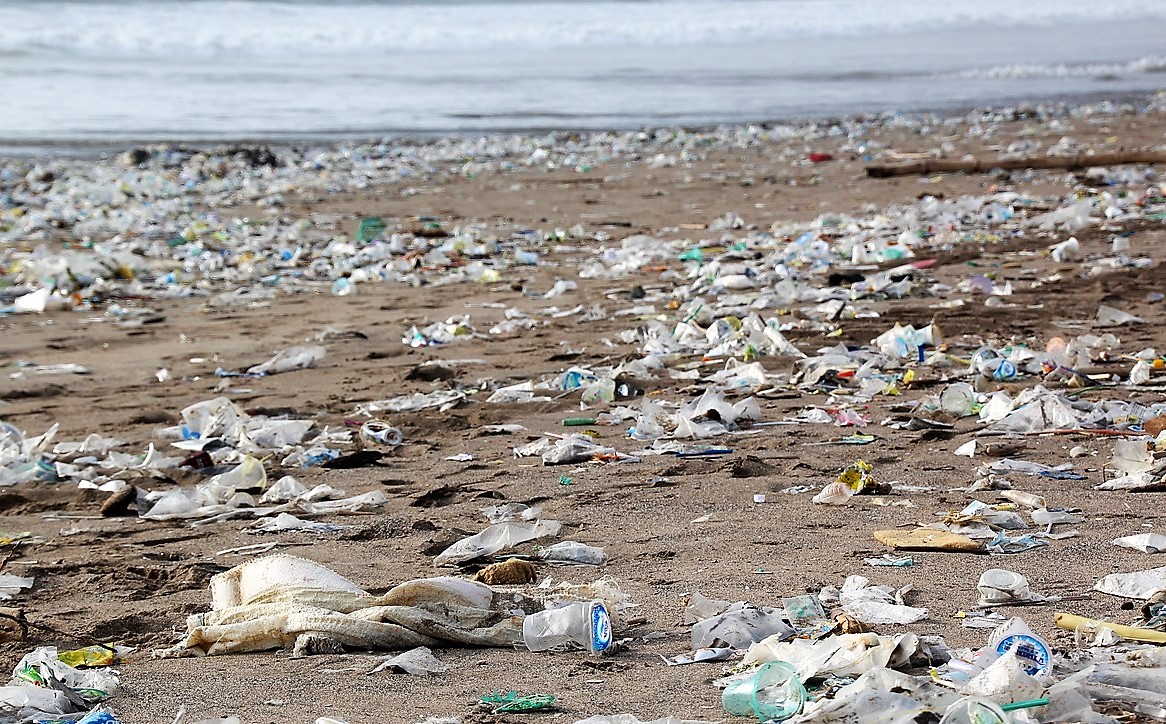 Scientists at the European Space Agency (ESA) are working on a technology that would allow them to identify from space just how much plastic there is floating around in oceans. Until now, researchers have used satellite maps to simulate the accumulat...
Scientists at the European Space Agency (ESA) are working on a technology that would allow them to identify from space just how much plastic there is floating around in oceans. Until now, researchers have used satellite maps to simulate the accumulat...
